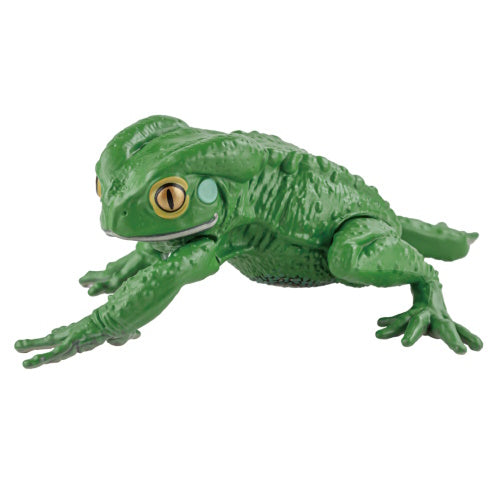Uncover Rare Rain Frog for Sale: Elevate Your Amphibian Collection Today!
Common Wellness Issues in Reptiles: Signs And Symptoms and Solutions
In the detailed world of reptile treatment, comprehending the usual health and wellness issues that might affect these one-of-a-kind creatures is extremely important in ensuring their health. Whether it's grappling with parasitic problems, navigating dehydration worries, or dealing with skin disorders that manifest in subtle means, being attuned to the symptoms and furnished with the knowledge of efficient remedies is vital for any kind of reptile owner.
Respiratory System Infections
Respiratory infections in reptiles can substantially influence their total wellness and call for prompt attention from skilled veterinarians. These infections are frequently triggered by viruses, microorganisms, or fungis and can show up via symptoms such as wheezing, nasal discharge, open-mouth breathing, and lethargy. In reptiles, respiratory infections can be particularly challenging to diagnose and treat due to their unique anatomy and physiology. Veterinarians frequently count on a combination of physical examinations, diagnostic imaging, and research laboratory examinations to properly determine the underlying reason for the infection.
Treatment for respiratory system infections in reptiles commonly includes a combination of encouraging treatment, such as maintaining correct humidity levels and temperature gradients in the enclosure, along with targeted medicine to resolve the details virus accountable for the infection. It is important for reptile owners to check their family pets closely for any kind of indications of respiratory distress and look for veterinary treatment at the earliest indication of a problem. With timely treatment and appropriate therapy, many reptiles can recoup completely from respiratory system infections and resume regular activities.
Metabolic Bone Illness
What variables contribute to the advancement of Metabolic Bone Condition in reptiles?
Metabolic Bone Illness (MBD) in reptiles is largely triggered by an absence of correct calcium, phosphorus, and vitamin D3 levels in their diet plan. When reptiles do not receive appropriate calcium, either through their food or appropriate UVB direct exposure for vitamin D3 synthesis, they go to a high risk of establishing MBD. Reptiles with diet regimens low in calcium or imbalanced calcium to phosphorus proportions are specifically susceptible. Furthermore, poor direct exposure to UVB light avoids reptiles from synthesizing vitamin D3, which is critical for calcium absorption and bone health.
Other contributing elements to MBD include incorrect temperature level slopes within the reptile's environment, bring about decreased metabolic process and damaged calcium absorption. Inadequate moisture levels can likewise affect a reptile's capability to metabolize calcium successfully. In addition, particular reptile varieties have details nutritional demands that, if not satisfied, can enhance the possibility of establishing MBD. Routine veterinary exams, appropriate husbandry methods, and a balanced diet are vital to prevent Metabolic Bone Condition in reptiles.
Parasitical Invasions
Parasitic problems position a significant wellness risk to reptiles, influencing their general well-being and needing prompt vet attention. Reptiles can be influenced by various bloodsuckers, including termites, ticks, internal worms, and protozoa. These parasites can create a variety of signs and symptoms, such as weight management, lethargy, skin irritability, diarrhea, and also death if left without treatment.
One usual bloodsucker found in reptiles is the mite, which can cause skin stress and anxiety, anemia, and inflammation. Ticks are an additional outside bloodsucker that can send conditions and trigger pain to the reptile. Internal parasites like worms and protozoa can lead to digestion problems, lack of nutrition, and go to this site compromise the reptile's immune system.
To diagnose a parasitic invasion, a vet might perform fecal tests, skin scrapings, or blood tests. Treatment commonly includes deworming medicines, antiparasitic bathrooms, or in serious situations, a hospital stay. Preventative measures such as regular vet examinations, correct hygiene, and quarantine treatments for new reptiles can help reduce the danger of parasitical problems and make certain the well-being of reptile animals.
Dehydration and Hydration Issues
Dehydration in reptiles can significantly impact their health and health, demanding timely intervention and appropriate hydration management. Reptiles are prone to dehydration as a result of various variables such as insufficient water consumption, high ecological temperature levels, and specific health and wellness conditions. Signs and symptoms of dehydration in reptiles consist of sunken eyes, lethargy, loss of skin elasticity, and reduced peeing. Dehydration can lead to significant health concerns and even be deadly to the reptile - rain frog for sale. if left without treatment.
To avoid dehydration, reptile proprietors should ensure that their pets have access to clean water in all times. The water recipe must be large sufficient for the reptile to take in if required, especially for species that absorb water through their skin. In addition, maintaining correct humidity levels in the reptile's unit and supplying routine bathrooms can aid protect against dehydration.
In cases of dehydration, it is critical to look for veterinary care quickly. A vet might carry out fluids either by mouth or via shots to rehydrate the reptile. It is important to resolve the underlying source of dehydration to avoid reoccurrence and make certain the reptile's general health.
Skin Conditions

Conclusion

Respiratory infections in reptiles can considerably impact their total health and need timely attention from skilled vets (rain frog for sale). Preventative actions such as normal veterinary examinations, appropriate hygiene, and quarantine treatments for brand-new reptiles can help lessen the danger of parasitical infestations and make sure the health of reptile pet dogs
If left unattended, dehydration can lead to significant health and wellness issues and also be fatal to the reptile.
Regularly inspecting your reptile for any type of changes in skin appearance, color, or look can assist in early discovery and therapy of skin moved here ailments, advertising the total health and wellness and health of your scaly buddy. - rain frog for sale
In verdict, reptiles are prone to different wellness issues such as breathing infections, metabolic bone condition, parasitical infestations, dehydration, and skin conditions.